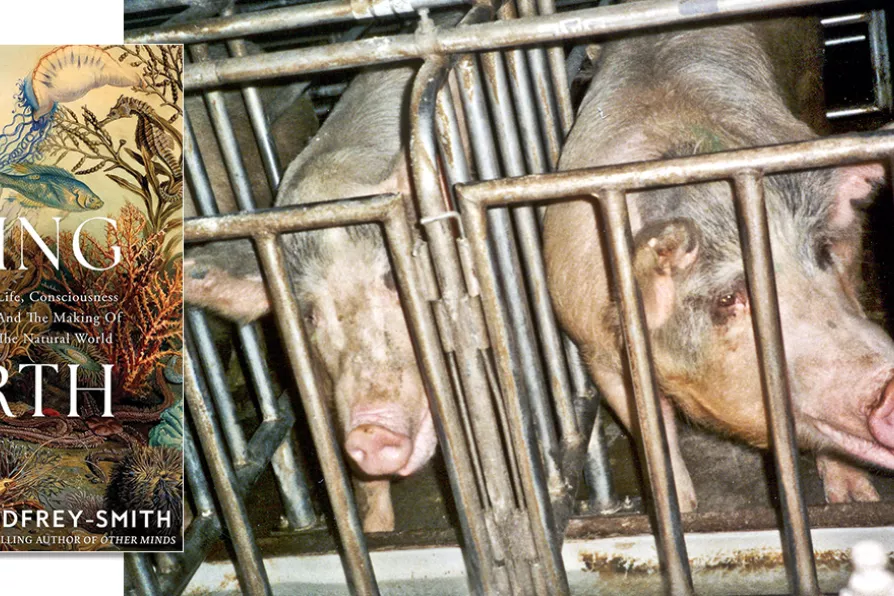GILL PARSONS introduces the remarkable process by which her childhood experience of a convalescent home has become a new drama

 PROFIT BEFORE HUMANITY: Female pigs used for breeding - 'breeding sows' are confined most of their lives in 'gestation crates' which are so small that they cannot even turn around. The pigs' basic needs are denied, and they experience severe physical and psychological disorders
[Farm Sanctuary/flickr/CC]
PROFIT BEFORE HUMANITY: Female pigs used for breeding - 'breeding sows' are confined most of their lives in 'gestation crates' which are so small that they cannot even turn around. The pigs' basic needs are denied, and they experience severe physical and psychological disorders
[Farm Sanctuary/flickr/CC]
Living on Earth: Life, Consciousness and The Making of the Natural World
Peter Godfrey-Smith
A CLIMATE emergency, species extinction, habitat destruction... all largely driven by human actions and choices. Why has our impact become so destructive? Logically, consciousness – whether human or animal – plays an important part.
The author begins with fundamentals. He charts the rise of life from the simplest chemical processes 3.8 billion years ago to the present. The emphasis is on the role evolution played within a unified, complex, ever-changing ecosystem. Shifts in climate are decisive, but living creatures also change their environments simply by living. No species in the long history of life on Earth has proved so dynamic as us.

The selection, analysis and interpretation of historical ‘facts’ always takes place within a paradigm, a model of how the world works. That’s why history is always a battleground, declares the Marx Memorial Library

From summit to summit, imperialist companies and governments cut, delay or water down their commitments, warn the Communist Parties of Britain, France, Portugal and Spain and the Workers Party of Belgium in a joint statement on Cop30

JOHN GREEN wades through a pessimistic prophesy that does not consider the need for radical change in political and social structures

Nature's self-reconstruction is both intriguing and beneficial and as such merits human protection, write ROX MIDDLETON, LIAM SHAW and MIRIAM GAUNTLETT










